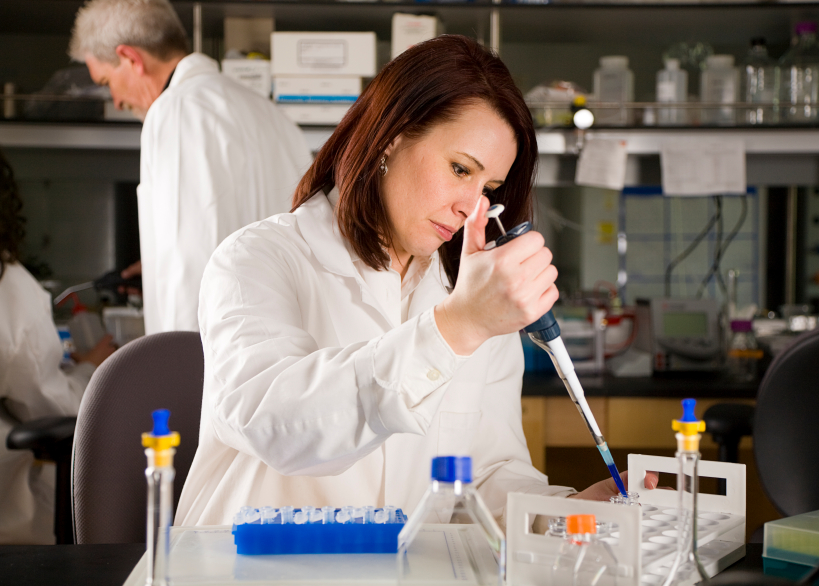Entering a new field is quite difficult, and you have to be very careful while making any decision regarding the same. Is there any sure shot formula of knowing if you are ready for a specific career? No, there is no such magic method. However, you know you are on the right path if your aspirations are complemented by passion and academic excellence. Becoming a lab technician requires both. This post talks about the special life that a lab technician lives and how you can also be one of those in the white coats.

What role does a lab technician plays in the laboratory? What are types of lab technicians are there? Why even care about becoming one? All these questions are obvious to arise after reading the headline of this article. However, first of all, you have to be sure; do you really want to try this career? Or is it just a passing thought. Knowledge is power. Awareness, whether self or about things surrounding you, is the key to making crucial decisions.
The life of lab technician or lab technologist
Laboratory technicians, but obviously, are found in laboratories. These might be chemical labs or medical labs, or labs specifically built for testing defense products or physics labs. Mostly, labs are meant for either testing various chemical combinations, and properties of earthly elements, or they might be used for studying the properties of physical matter in various forms. In any case, the work of a lab technician is nothing if not exciting. You constantly get to work beyond the limits of a normal human understanding, break the limits and create new things which others might not even have heard of.
In very basic terms, we can understand that a lab technician would collect, examine and test the various body fluids, chemicals, particles, matter, depending on the type of environment they are working in. In some cases, a lab technician is the sole person responsible for this job, while there are scenarios in which these technicians perform their job duties under the guidance of laboratory technologists or laboratory managers. Most of the time a lab technician works standing on his feet, and he or she might also have to work overtime if the lab runs around the clock. Dealing with toxic material is another risk, but with proper care and precautions that are an indispensable part of this job, any risk of a health hazard is reduced to a great extent.
Finding your way to become a lab technician
There are certain academic requirements that one needs to fulfill to find a foothold in this profession. One would generally require a postgraduate certificate or a graduation degree in chemistry, physics or medical laboratory technology. However it is not necessary to have a degree to become scientific laboratory technician and it depends on country to country and state to state. For example, in UK, there are many positions may ask for GCSEs or science related A-levels. Needless to say, with a degree and good higher education in the relevant subjects will help you secure new job fast, particularly when there is tough competition.
Good education with some pre-entry experience in laboratory is even better, as it helps you demonstrate the expertise in lab procedures.
Owing to the continuous advancements in technology, lab work has become more analytical. This demands better analytical skills and an ability to make right decisions from laboratory personnel. Those who are equipped with a degree can expect to work out the most complex procedures. With a diploma you can only go as far as a technician’s role, who must work under the supervision of technologists.
With the growing population, and new tests coming up, the job market for laboratory technicians is expected to remain strong. According to the data provided by The Bureau of Labour Statistic, USA, clinical laboratory technician employment growth of 29.7 percent between 2012 and 2022, adding 47,900 more professionals to the 325,800 jobs currently in this field.
Some Techniques to land a job as a laboratory technician
The most tried and tested technique to secure a job is make new connections during the education and training programs. According to experts, taking the membership of a professional organization provides more than ample excellent networking opportunities that will improve your chances of getting hired. As stated earlier, an industry recognized certification will always boost a budding tech’s job chances. Although it is not a very strict requirement to have a certification, employers will obviously give preference to certified professionals.
Author Bio-
Saurabh Tyagi is a blogger and a professional career author with proven expertise in writing for topics related to jobs, job trends, different job opportunities, various workplace and industry information, tips and strategies for job seekers.








